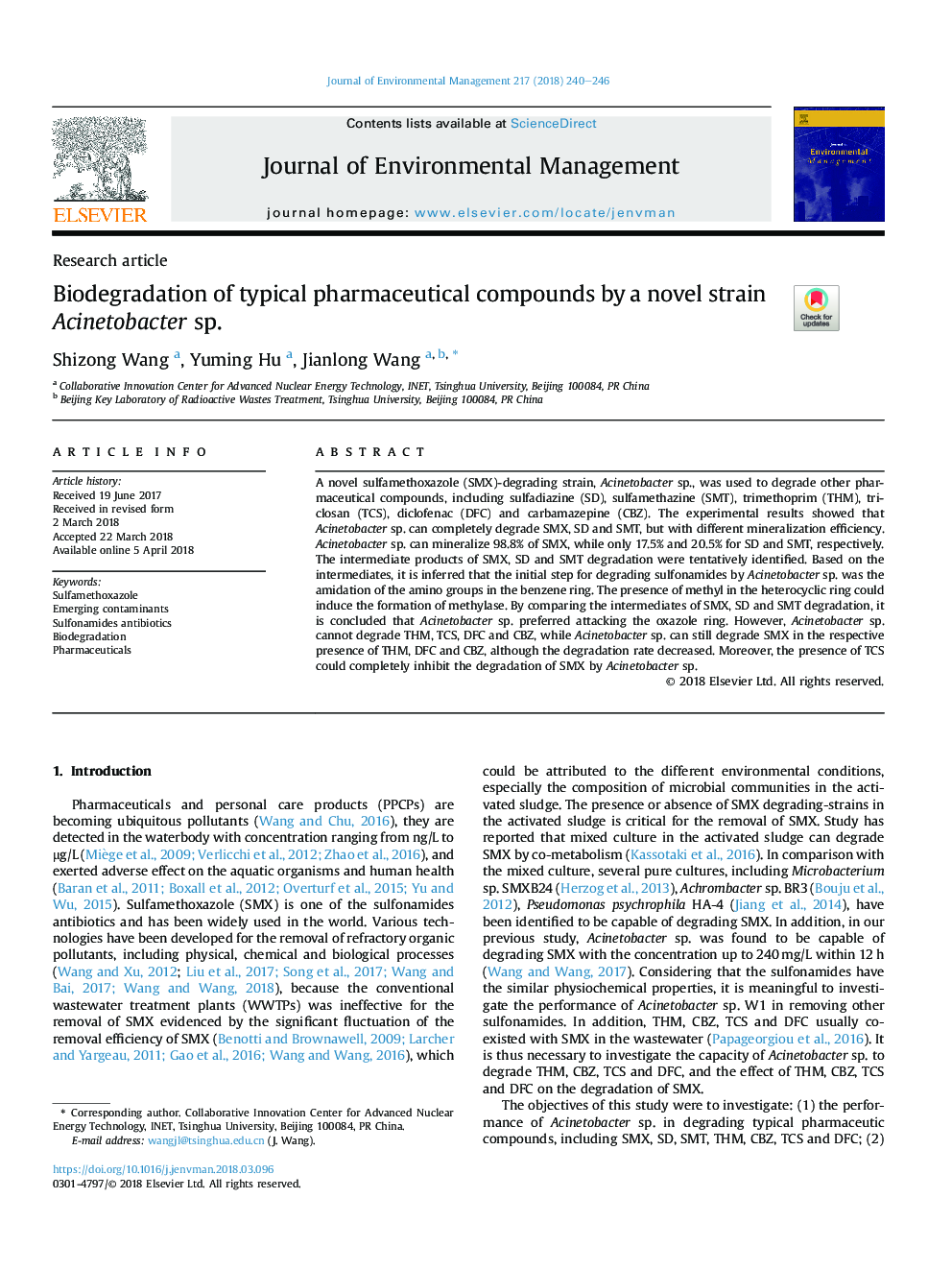| کد مقاله | کد نشریه | سال انتشار | مقاله انگلیسی | نسخه تمام متن |
|---|---|---|---|---|
| 7477177 | 1485201 | 2018 | 7 صفحه PDF | دانلود رایگان |
عنوان انگلیسی مقاله ISI
Biodegradation of typical pharmaceutical compounds by a novel strain Acinetobacter sp.
دانلود مقاله + سفارش ترجمه
دانلود مقاله ISI انگلیسی
رایگان برای ایرانیان
کلمات کلیدی
موضوعات مرتبط
مهندسی و علوم پایه
مهندسی انرژی
انرژی های تجدید پذیر، توسعه پایدار و محیط زیست
پیش نمایش صفحه اول مقاله

چکیده انگلیسی
A novel sulfamethoxazole (SMX)-degrading strain, Acinetobacter sp., was used to degrade other pharmaceutical compounds, including sulfadiazine (SD), sulfamethazine (SMT), trimethoprim (THM), triclosan (TCS), diclofenac (DFC) and carbamazepine (CBZ). The experimental results showed that Acinetobacter sp. can completely degrade SMX, SD and SMT, but with different mineralization efficiency. Acinetobacter sp. can mineralize 98.8% of SMX, while only 17.5% and 20.5% for SD and SMT, respectively. The intermediate products of SMX, SD and SMT degradation were tentatively identified. Based on the intermediates, it is inferred that the initial step for degrading sulfonamides by Acinetobacter sp. was the amidation of the amino groups in the benzene ring. The presence of methyl in the heterocyclic ring could induce the formation of methylase. By comparing the intermediates of SMX, SD and SMT degradation, it is concluded that Acinetobacter sp. preferred attacking the oxazole ring. However, Acinetobacter sp. cannot degrade THM, TCS, DFC and CBZ, while Acinetobacter sp. can still degrade SMX in the respective presence of THM, DFC and CBZ, although the degradation rate decreased. Moreover, the presence of TCS could completely inhibit the degradation of SMX by Acinetobacter sp.
ناشر
Database: Elsevier - ScienceDirect (ساینس دایرکت)
Journal: Journal of Environmental Management - Volume 217, 1 July 2018, Pages 240-246
Journal: Journal of Environmental Management - Volume 217, 1 July 2018, Pages 240-246
نویسندگان
Shizong Wang, Yuming Hu, Jianlong Wang,